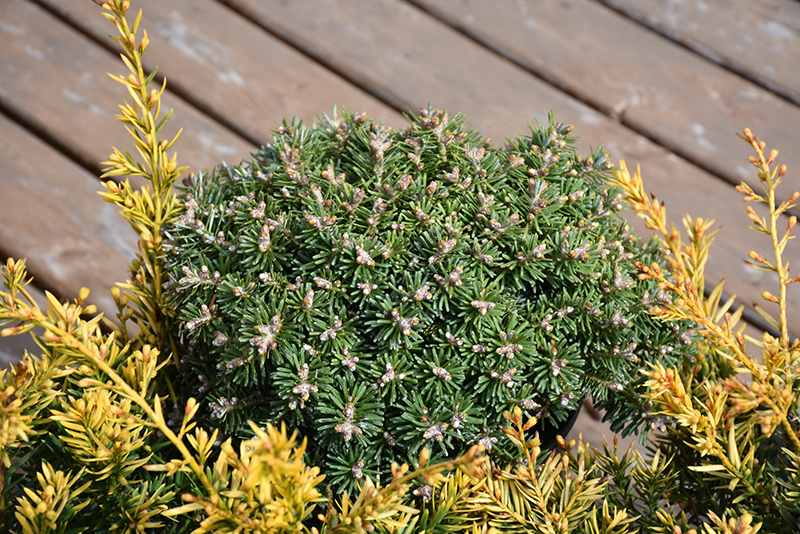Gertens Plant Finder
Blue Eskimo Korean Fir
Abies koreana 'Blauer Eskimo'
Height: 12 inches
Spread: 12 inches
Sunlight:
![]()
Hardiness Zone: 4a
Brand: Iseli Nursery
Description:
A dense rounded miniature selection with an unusual shade of gray-green needles on short stems; forms a tight, uniform, globe-shaped habit; great as an accent for the rock garden or along border fronts
Ornamental Features
Blue Eskimo Korean Fir is a dwarf conifer which is primarily valued in the garden for its ornamental globe-shaped form. It has attractive bluish-green foliage with hints of powder blue. The small needles are highly ornamental and remain bluish-green throughout the winter.
Landscape Attributes
Blue Eskimo Korean Fir is a dense multi-stemmed evergreen shrub with a more or less rounded form. It lends an extremely fine and delicate texture to the landscape composition which should be used to full effect.
This is a relatively low maintenance shrub, and usually looks its best without pruning, although it will tolerate pruning. It has no significant negative characteristics.
Blue Eskimo Korean Fir is recommended for the following landscape applications;
- Mass Planting
- Rock/Alpine Gardens
- General Garden Use
Planting & Growing
Blue Eskimo Korean Fir will grow to be about 12 inches tall at maturity, with a spread of 12 inches. It tends to fill out right to the ground and therefore doesn't necessarily require facer plants in front. It grows at a slow rate, and under ideal conditions can be expected to live for 60 years or more.
This shrub should only be grown in full sunlight. It prefers to grow in average to moist conditions, and shouldn't be allowed to dry out. It is not particular as to soil pH, but grows best in sandy soils. It is quite intolerant of urban pollution, therefore inner city or urban streetside plantings are best avoided, and will benefit from being planted in a relatively sheltered location. Consider applying a thick mulch around the root zone in winter to protect it in exposed locations or colder microclimates. This is a selected variety of a species not originally from North America.

